This is how the fish farms of the future will be developed
PUBLISHED
One of the most exciting projects in land-based farming is planned on Brennholmen in Åfjord. Energy efficiency, RAS technology and possible salad growing are just some of the things that the young developers at Kvidul are working on.
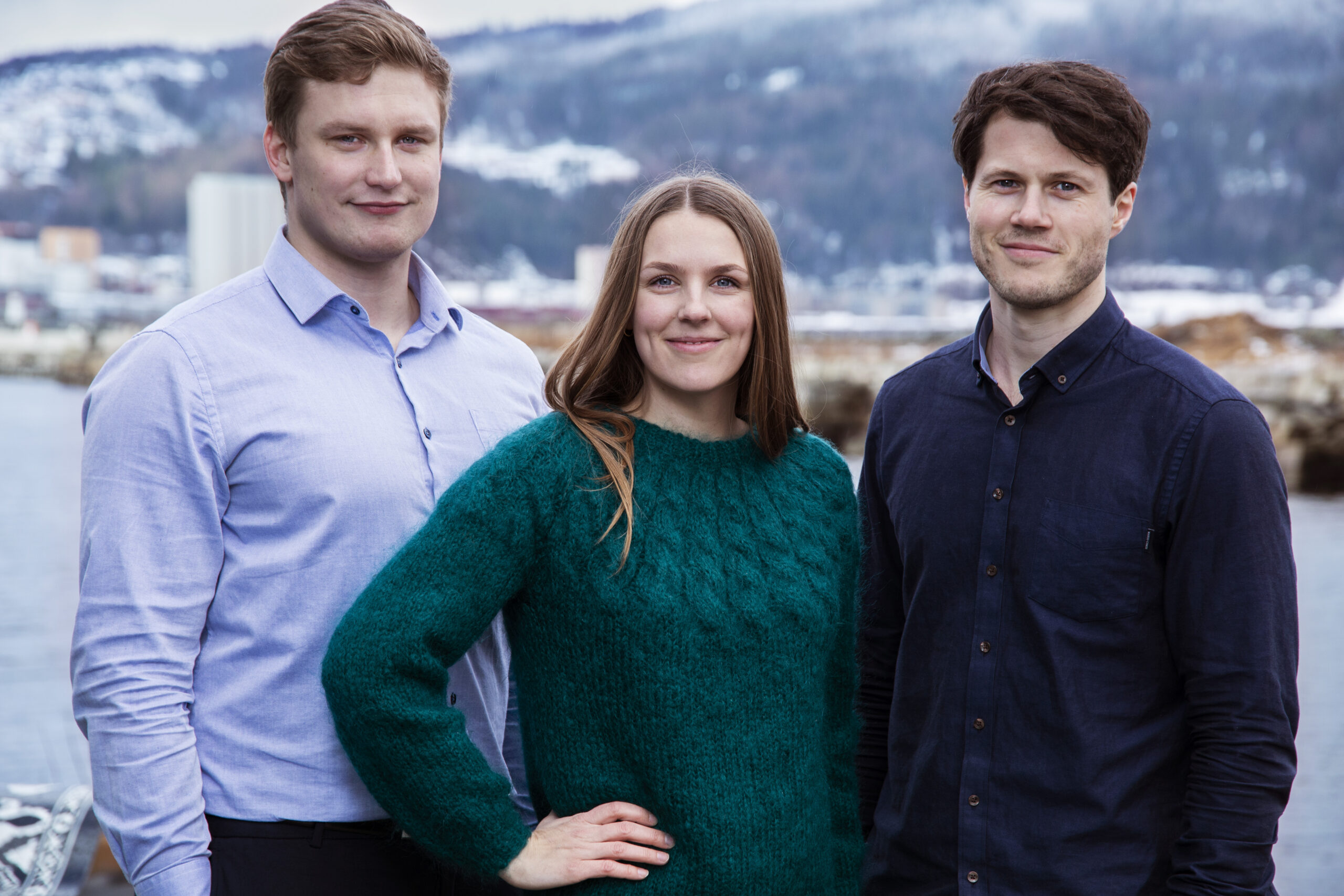
- The most important thing for us is to work with something we believe in, says Øyvind Øksnes Dalheim. We have plans that we think are good. Dalheim has a master's degree in marine engineering from NTNU, and has worked as a researcher and research fellow both at NTNU and in collaboration with several industry partners.
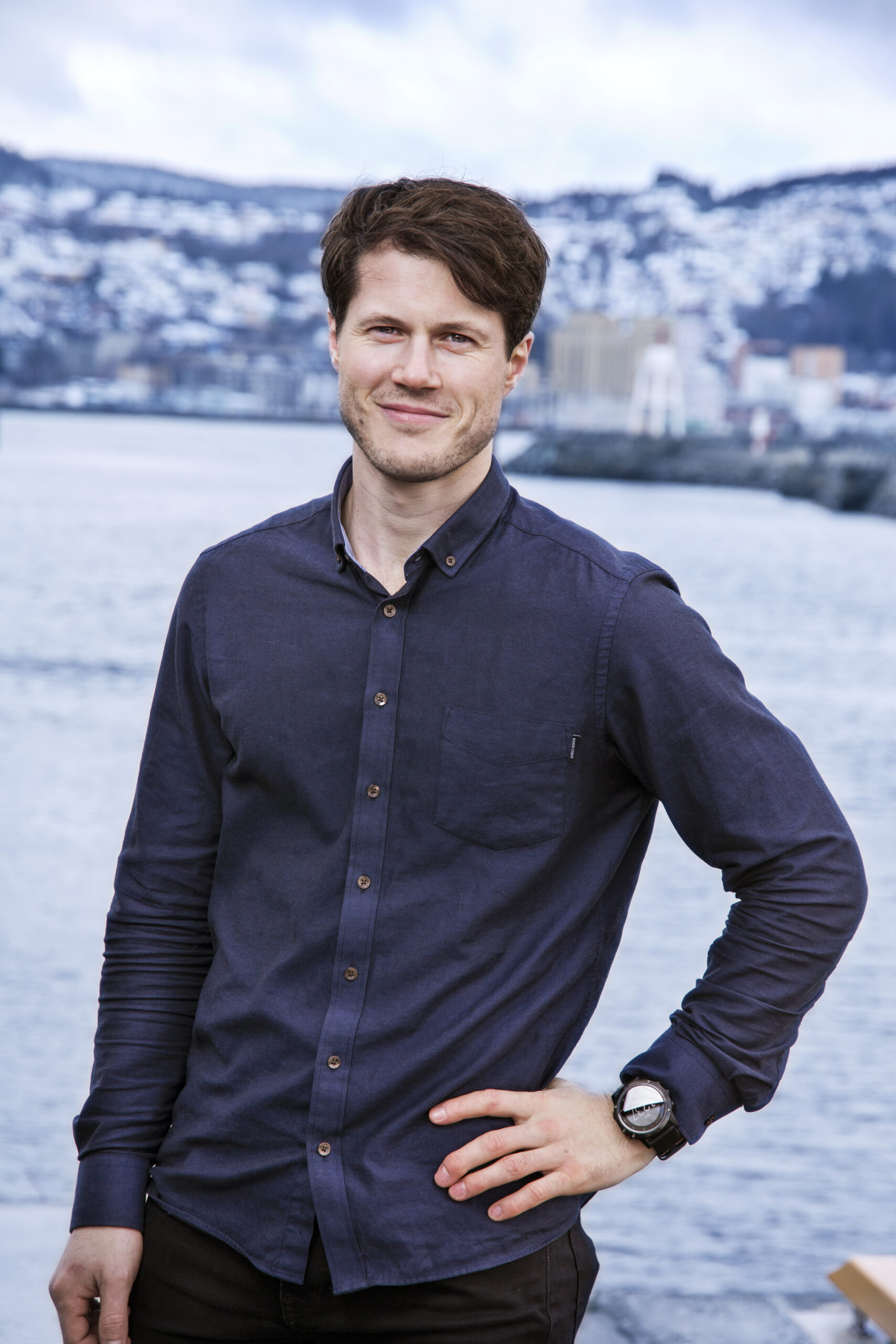
ANALYSIS AND DEVELOPMENT ENVIRONMENT: Øyvind Øksnes Dalheim leads the young environment in Kvidul.
Together with, among others, Astrid Kristine Tennøy and Damian Steinke, he is helping to develop what could be a new industrial adventure , both for Åfjord and the whole of Norway.
But for these three, the most important thing is not to start producing 40,000 tons of food fish on Brennholmen as quickly as possible. What drives them is to develop new and sustainable technology.
But for these three, the most important thing is not to start producing 40,000 tons of food fish on Brennholmen as quickly as possible. What drives them is to develop new and sustainable technology.
Background for technology development
Salmon escaping from breeding cages carry genetic contamination of wild salmon strains. In addition, sea-based farming produces large discharges of nutrients to the sea, which means local pollution. Add to these problems with salmon lice.
This is why there are hardly any new licenses for sea-based farming.
- Land-based farming eliminates all this, says Dalheim.
This is why there are hardly any new licenses for sea-based farming.
- Land-based farming eliminates all this, says Dalheim.
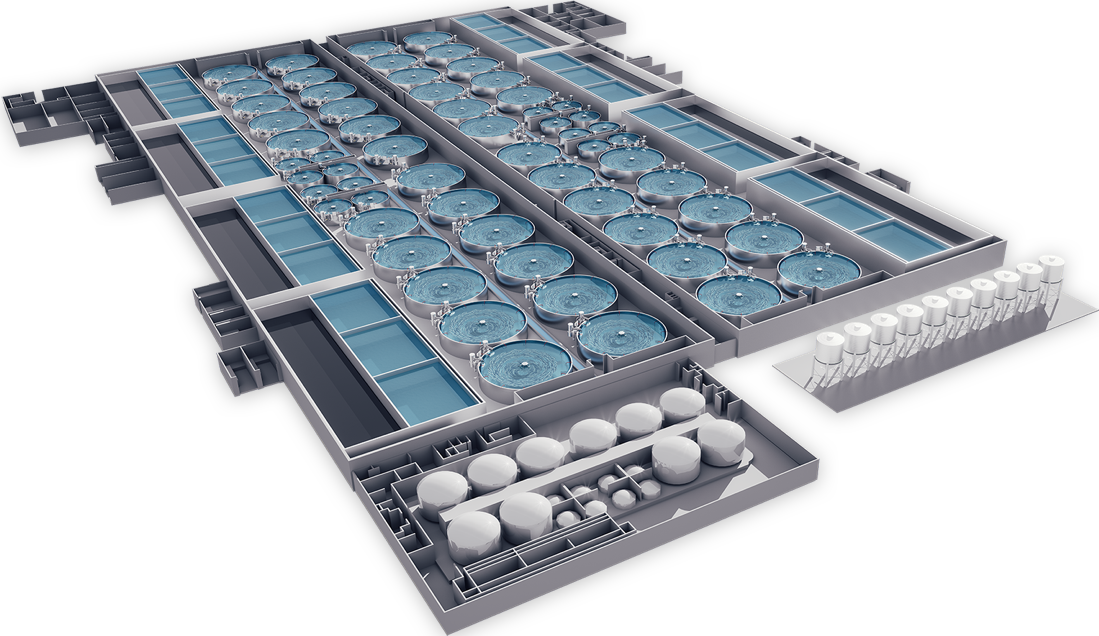
RAS TECHNOLOGY: AquaMaof has signed a framework agreement with Kvidul and will deliver RAS technology to the fish farm at Fosen.
Utilization of energy and resources
The challenge now is to develop new technology that makes food fish production on land profitable. At Kvidul, large parts of the organization work precisely with this.
The younger generation of technologists is already trained to think in a new way: Energy efficiency and the reuse of resources are a part of our DNA.
- "A facility as large as we plan requires a lot of energy", says Dalheim. "It is, therefore, absolutely fundamental for us to think about energy efficiency all the way, among other things, by utilizing the heat from wastewater and gravity for flow. In addition, we will base our energy needs on renewable sources and include this in the planning from the start".
Åfjord is already established as a wind power municipality, but in addition, Kvidul is planning its own energy production based on solar and geothermal energy.
The younger generation of technologists is already trained to think in a new way: Energy efficiency and the reuse of resources are a part of our DNA.
- "A facility as large as we plan requires a lot of energy", says Dalheim. "It is, therefore, absolutely fundamental for us to think about energy efficiency all the way, among other things, by utilizing the heat from wastewater and gravity for flow. In addition, we will base our energy needs on renewable sources and include this in the planning from the start".
Åfjord is already established as a wind power municipality, but in addition, Kvidul is planning its own energy production based on solar and geothermal energy.
RAS technology
Damian Steinke also has a degree in marine engineering from NTNU. At Kvidul, he works primarily with collaborating with subcontractors, including the RAS technology.
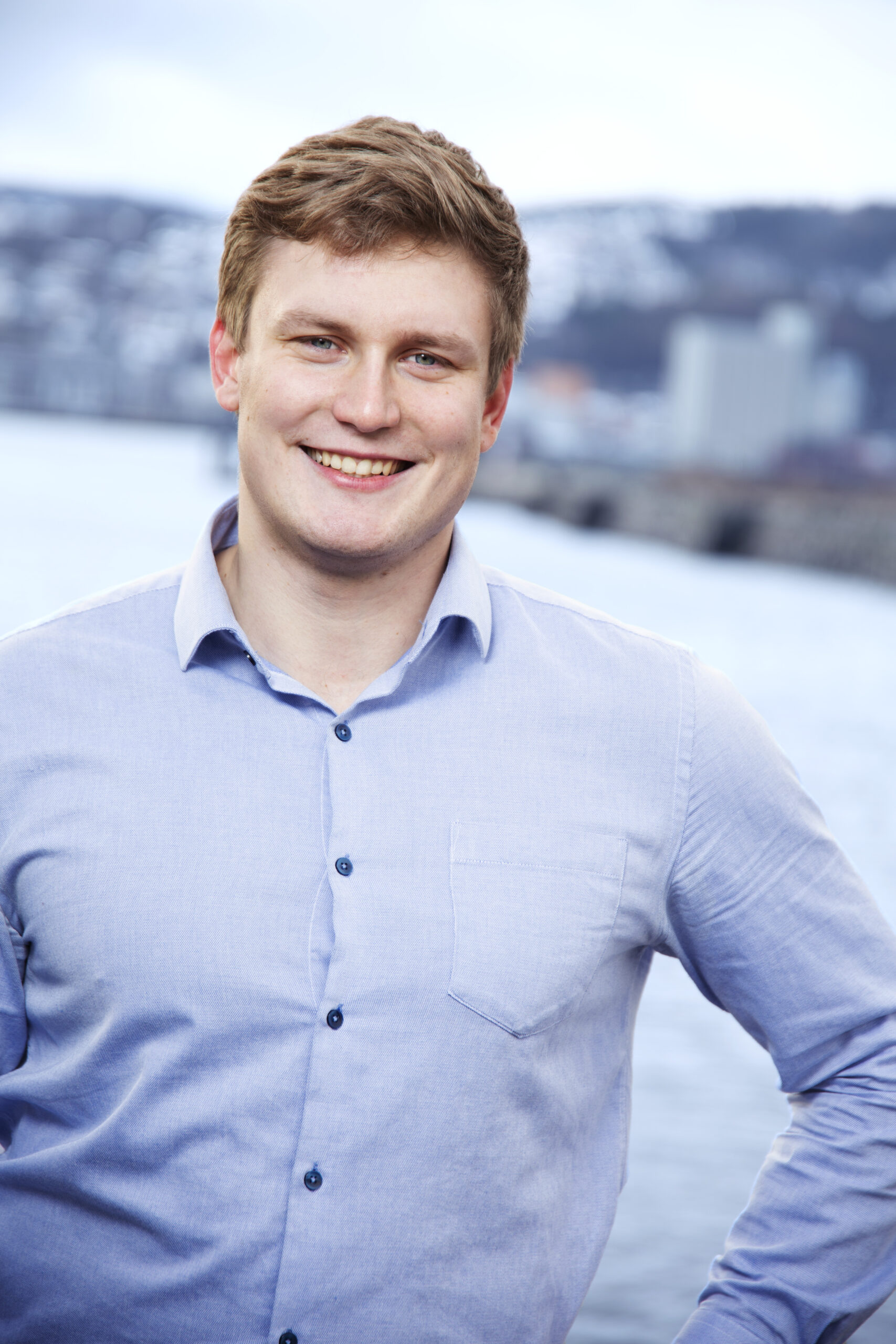
- "RAS is a technology that purifies and recycles the water used in the production plant", Steinke explains. "In practice, this is the only way to ensure low water consumption and emissions. At the same time, RAS technology gives you full control over the salmon's health and growth conditions to provide an optimized growth environment for the fish", Steinke explains.
Kvidul has now partnered with AquaMoaf, a world leader in RAS technology. Their technology makes it possible to produce salmon completely without chemicals and antibiotics.
- "This fits perfectly into our self-developed Green Value Chain", Steinke continues enthusiastically. "Together with AquaMoaf, we will simply develop the fish farms of the future".
Part of the development work is also within digital monitoring systems, which will largely exclude human errors.
Kvidul has now partnered with AquaMoaf, a world leader in RAS technology. Their technology makes it possible to produce salmon completely without chemicals and antibiotics.
- "This fits perfectly into our self-developed Green Value Chain", Steinke continues enthusiastically. "Together with AquaMoaf, we will simply develop the fish farms of the future".
Part of the development work is also within digital monitoring systems, which will largely exclude human errors.
Utilization of waste substances
The surplus industry represents a major source of pollution in traditional fish farms. In a RAS system, you have the technology to purify the wastewater. But the very best thing is to use the industry in a circular cycle.
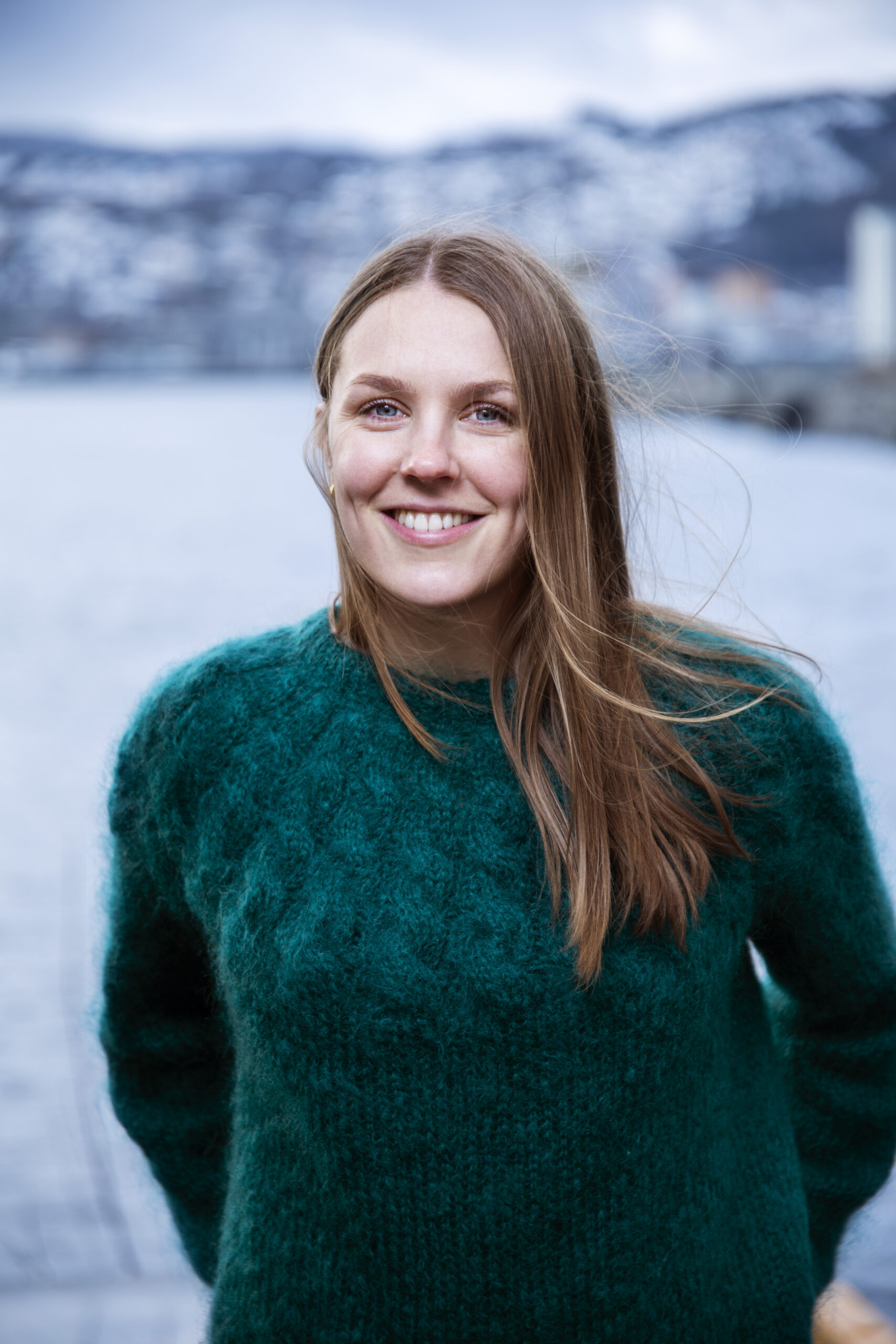
AQUAPONICS: Astrid Kristine Tennøy is writing a master's thesis on the utilization of wastewater in fish production for the production of vegetables.
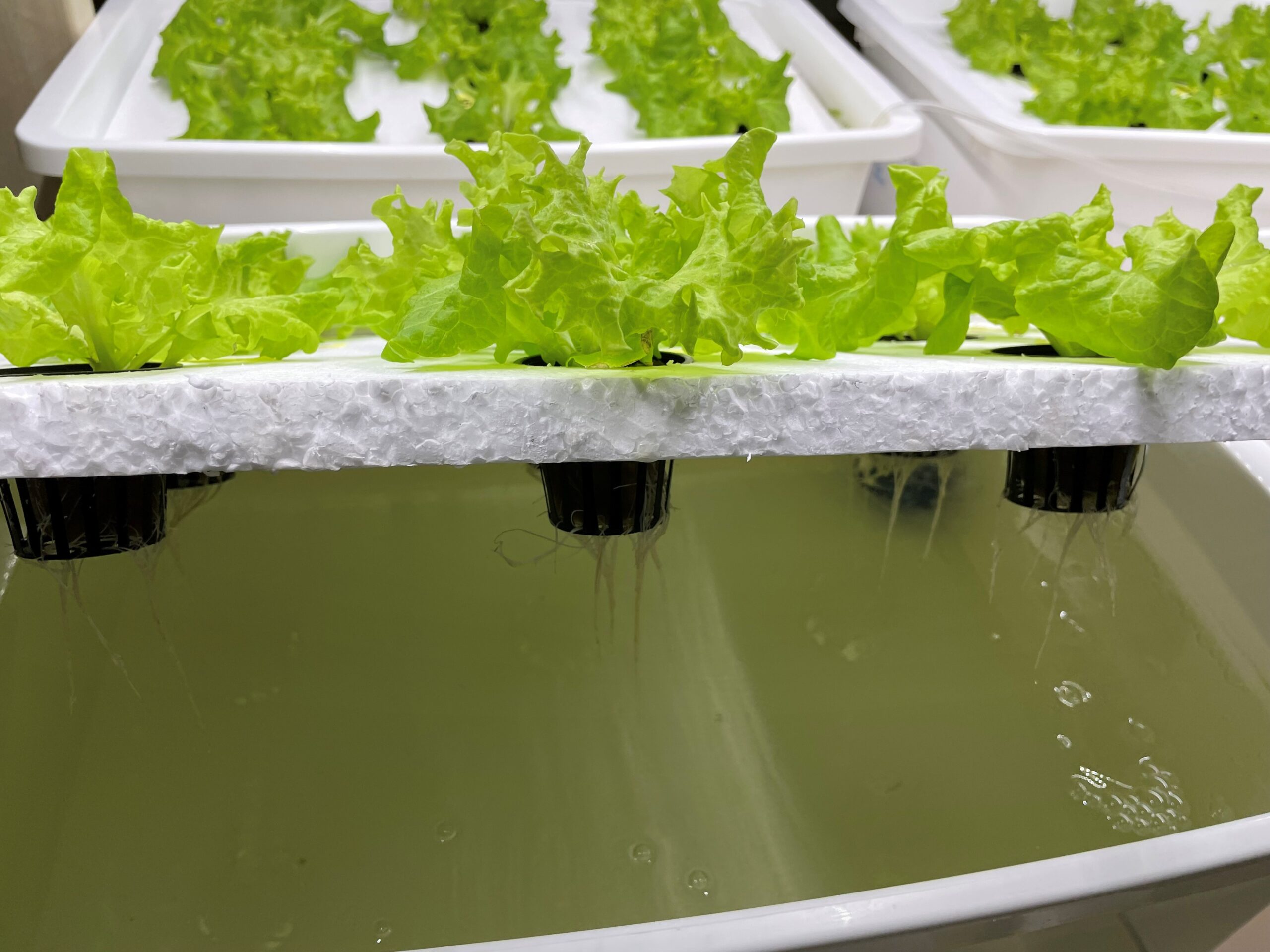
MASTER'S THESIS AT NTNU: Astrid Kristine Tennøy does several experiments with lettuce cultivation to map factors that play a role in an aquaponics system.
- The waste from farming consists of large amounts of valuable nutrients that must be utilized further. Phosphorus, for example, is a limited resource globally, of which there is a lot in farming. This nutrient is also necessary for plant growth and is extracted for use in fertilizers.
Astrid Kristine Tennøy has experience working at sea and hatchery facilities, and a bachelor's degree in biomarine innovation from NTNU in Ålesund. In the spring of 2022, she will submit her master's thesis in food science, technology, and sustainability at NTNU in Trondheim. The task deals, among other things, with salad cultivation in fish farms.
In June 2021, in parallel with her studies, she started at Kvidul.
- "Together with Kvidul, I will develop technology that can provide even more opportunities for land-based farming and sustainable food production", Tennøy concludes.
Astrid Kristine Tennøy has experience working at sea and hatchery facilities, and a bachelor's degree in biomarine innovation from NTNU in Ålesund. In the spring of 2022, she will submit her master's thesis in food science, technology, and sustainability at NTNU in Trondheim. The task deals, among other things, with salad cultivation in fish farms.
In June 2021, in parallel with her studies, she started at Kvidul.
- "Together with Kvidul, I will develop technology that can provide even more opportunities for land-based farming and sustainable food production", Tennøy concludes.